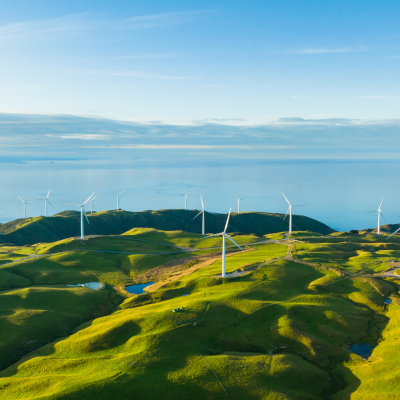Fast and continued urbanisation on an unprecedented scale characterises the development of Asian cities, with rapid economic expansion spearheaded in most locations by the manufacturing industry and quickly rising motorisation. As a result, greenhouse gas emissions have increased, as have local environmental repercussions. Moreover, gaps in income, education levels and employment potential have widened among the urban population. In Asia, urbanisation is expected to rise from 45% in 2011 to 64.4% in 2050, with an additional 1.4 billion people living in cities. Asian countries’ decisions on how to manage the growing urbanisation will likely have far-reaching and long-term effects on the environment and human well-being. Asian economies are propelled by dynamic Asian cities in China, India and ASEAN. Although GDP per capita in Asia still diverges widely, most Asian nations’ growth rates over the last two decades have been significantly greater than the global average.
These economic and urbanisation changes create obstacles and bring possibilities. Local environmental issues, such as water resource management, waste disposal and air pollution, must be addressed on an unprecedented scale. Countries are debating this decade’s biodiversity objectives set by the UN under the post-2020 Global Biodiversity Framework (GBF) at COP15 in Montreal. Simultaneously, conversations are underway on how to attain the planned GBF objectives and how nature-based solutions and biodiversity-friendly infrastructure may play important roles.
‘Green’ solutions, which include utilising natural features, such as water systems and coastal wetlands, are currently viewed as providing and/or protecting a wide range of ecosystem services such as water purification, improved air quality, food security, increased livelihood, and improved health and well-being. Furthermore, COP27 contributed to a new understanding of ecosystems’ crucial roles in mitigating climate change (promoting new technologies such as green hydrogen and green ammonia), sequestering and storing CO2 (promoting carbon capture, utilisation and storage), eliminating pollutants from the atmosphere (by modifying polluting processes from the hard-to-abate sector such as converting blast furnace operations on hydrogen-based direct reduction of iron and utilising sustainable aviation fuels) and acting as a buffer against climate-related calamities.
Southeast Asian countries must endure an expensive economic transition to establish low-carbon and climate-resilient economies. To effectively accelerate the economic transition to a sustainable future, the financial sector must adopt measures to drive green growth. According to The World Bank, emerging markets and developing economies (EMDEs) would require billions of dollars in yearly funding for climate change mitigation and adaptation activities. Financing for low-carbon, climate-resilient infrastructure alone is expected to reach at least US$1.55 trillion per year between now and 2030 in EMDEs.
Southeast Asia has a large untapped potential for sustainable financial market development. Before 2013, there were essentially no primary sustainable debt and equity markets, not only in the ASEAN-5 but also internationally. The growth has been considerable since then. The overall sustainable debt raised yearly in the ASEAN-5 climbed from US$0.25 billion in 2016 to US$6.75 billion in 2021, increasing the total outstanding sustainable debt to around US$24 billion. Green debt accounts for the majority of the ASEAN-5’s sustainable debt; however, other theme issuances have also increased. Sustainable private equity markets have grown materially in the last five years, but the expansion has been limited. For example, the total private equity financing for clean and climate technology in the ASEAN-5 is expected to be around US$265 million over 2017-2021, less than 5% of the amount raised in sustainable loan markets.
The accessibility of sustainable financial markets is relatively limited—excluding financial institutions, just 83 ASEAN-5 enterprises have accessed sustainable loan and equity markets since 2017. During 2017-2021, sustainable debt markets supported 31 non-financial firms through sustainable bonds or syndicated loans, raising a total of US$8.96 billion. Over the same period, private equity markets sponsored 52 more firms with climate and/or clean technology initiatives. Despite the fast expansion, the ASEAN-5’s potential in contributing to the future development of sustainable finance remains largely unexplored. Sustainable debt markets in the ASEAN-5 is estimated to account for roughly 2.5% of the total debt in 2021 — the share remains modest compared to conventional markets. In terms of private equity financing, funding for climate and clean technology accounted for 0.57% of the total in the ASEAN-5 over 2017-2021.
In the more established markets of East Asia and the Pacific, private equity finance for climate and sustainable technology accounts for 7.9% of all private equity investments. Comparisons with global markets reveal the ASEAN-5’s potential for growth in sustainable financial markets. Although Malaysia and the Philippines have the deepest sustainable loan markets within the ASEAN-5, they are ranked 36th and 40th, respectively, out of 76 nations with sustainable debt issuances. Thailand, Indonesia and Vietnam are ranked even lower, 46th, 51st and 63rd respectively.
At Gunung Capital, our mission is to support exceptional companies through our team of investment and operating professionals by providing outstanding opportunities for long-term sustainable growth and risk-adjusted returns. Leveraging our 50+ years of industrial experience and a US$1 billion asset portfolio, we build ideas into innovative new ventures and provide the tools and knowledge needed to pave the road for a more creative future. Gunung Capital focuses on an active management style to optimise the value of investments for our strategic partners. Our team has extensive experience in implementing turnaround strategies in technology transformation, operational-efficiency-improvement measures, and decarbonisation and ESG initiatives. Gunung Capital will support sustainable businesses in achieving their business goals and targets through active involvement in investment decisions, process and technology transformation, implementation of sustainable strategies, and growth strategies.














